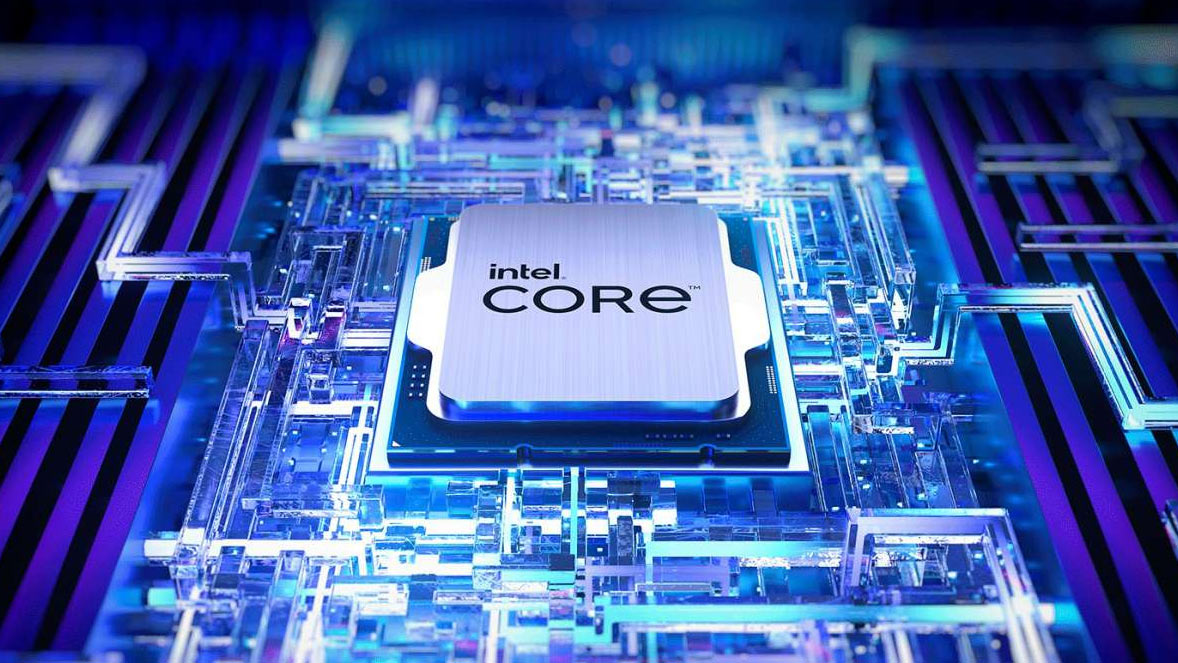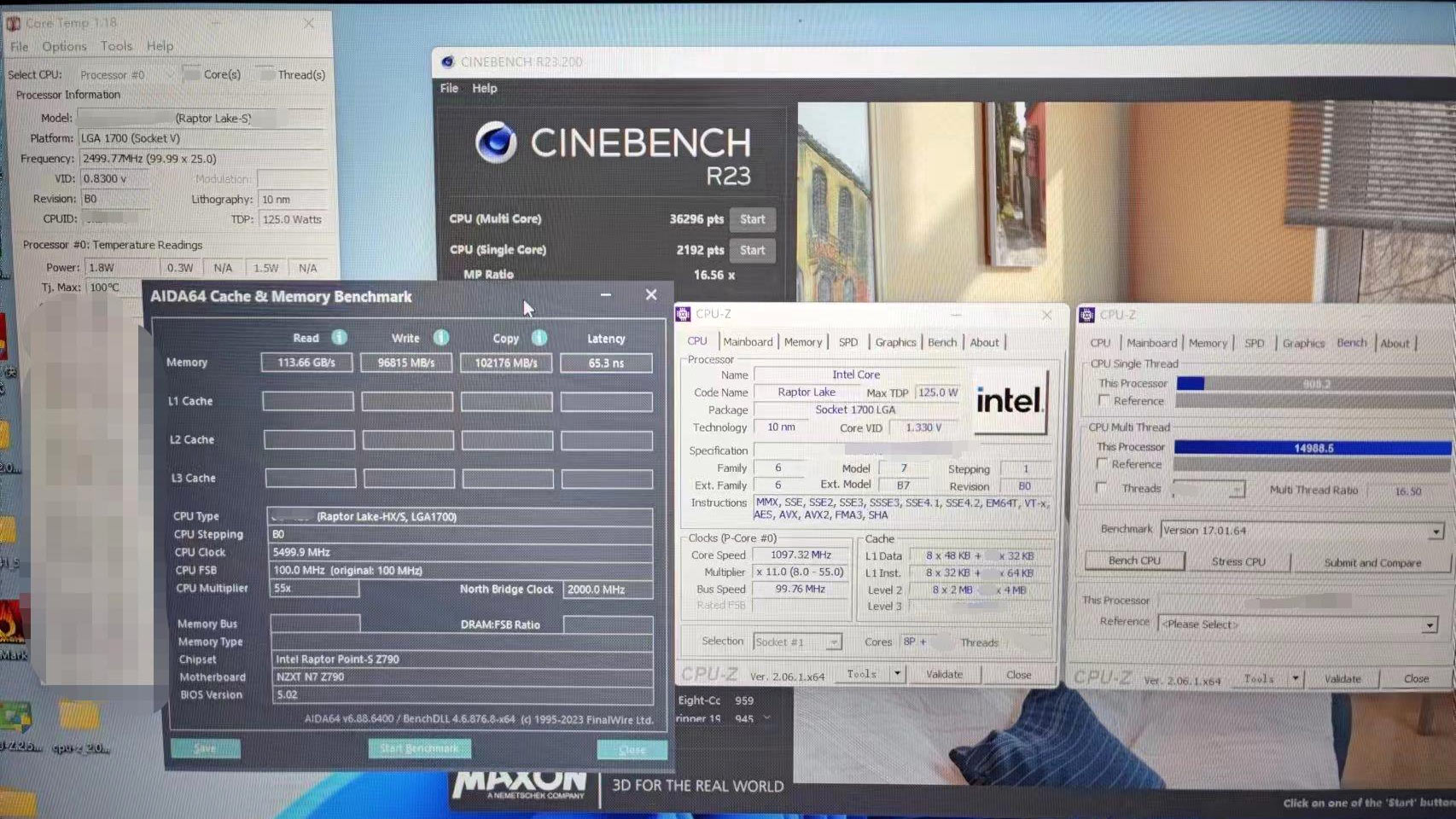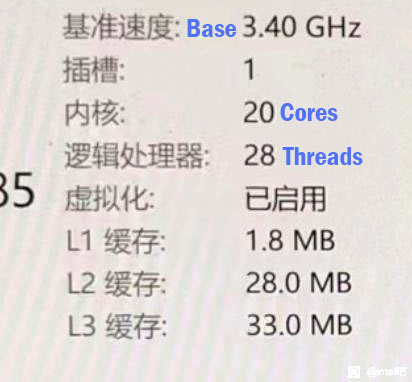
A seasoned Twitter-based hardware leaker has shared a screenshot which seems to show the results of an Intel Core i7-14700K put through a trio of benchmarks. WXnod shared a screenshot a few hours ago, without comment, and in it you can see that the supposed Raptor Lake Refresh chip has been tested in AIDA64, Cinebench, and CPU-Z. Compared to its predecessor, the Core i7 13700K, the new chip appears to be as much as 20% faster in multi-threaded workloads.

The Intel Core i7-14700K is a expected to be a particularly interesting member of Raptor Lake Refresh as, according to the latest information, it is unique in delivering a reconfigured core spec. To explain that, while its predecessor offered an 8P + 8E core configuration, the refreshed model is rumored to come with 8P + 12E. WXnod's leak has all core configuration details blurred out, for some reason. However, fellow Twitter hardware tipster Harukaze5719 has ridden to our rescue, augmenting this leak with a Baidu-sourced screenshot complete with core configuration data. See below.
Working through the on-screen data, we can see that the chip which is under is identified by the software as a Raptor Lake-S model, for the LGA 1700 socket, fabricated using 10 nm lithography (Intel 7), which boosts up to 5.5 GHz in this example, and has a TDP of 125W.

The screenshot purportedly shows that the Intel Core i7-14700K offers a base clock of 3.40 GHz, and a core configuration detected as offering 20C / 28T. This fits with 8P + 12E cores (16 + 12 threads).
Circling back to the original info spill from WXnod, we have to assume that the benchmarks are genuine, accurate and representative (but taken with a pinch of salt), and create a comparison table. Data for the Core i7-13700K comes from our review (linked) and online databases.
From the memory test results (AIDA64) we can see an alleged and significant uplift in bandwidth, but this could be helped by a system with a newer motherboard and different RAM module choices. Moving onto Cinebench, and while single-core tests aren't much different, the expected extra cores / threads in this Raptor Lake Refresh CPU show their worth. The same can be said for CPU-Z 1T and nT processor testing. At best, the processor multithread tests show that the i7-14700K is 20.6% faster in CPU-Z, and up to 17.5% faster in Cinebench, compared to the previous gen CPU.
If you are running an Intel socket LGA 1700 system and could be tempted to upgrade to a Raptor Lake Refresh chip, you shouldn't have to wait a very long time, as the 'K' chips are tipped to arrive in mid-to-late October. However, there are indications that the Core i7-14700K (in particular) might need users to apply a BIOS update, to get it working correctly.







